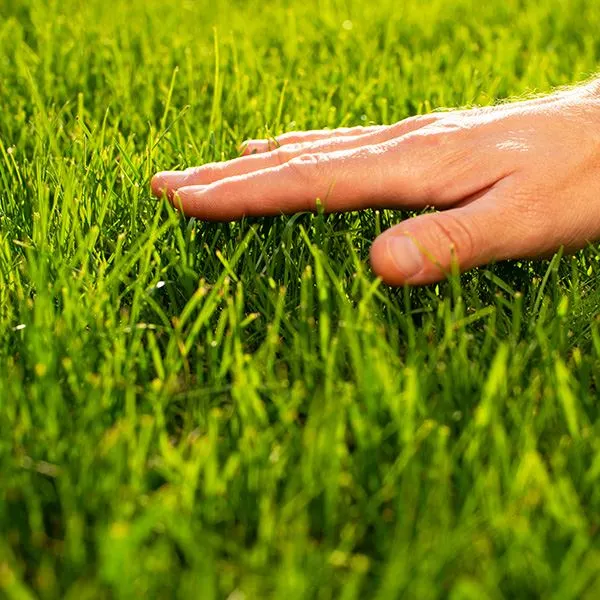If you want to keep your lawn green and healthy, fertilizing it in the spring and fall will go a long way.
When in spring? Well, that can depend on your unique lawn. You might want to wait until its noticeable growing again after the last spring frost, about when half of it is green again. At this point, your grass will be hungry for all of the nutrients in your fertilizer, so very little of it is likely to go to waste by going down too soon.
After you’ve finished fertilizing your lawn for spring, you won’t have to worry about it again until the fall. Generally speaking, you shouldn’t wait any longer than six weeks before the first frost (or when temperatures are expected to dip near freezing). This can vary depending on where in Texas you live.
If you aren’t sure if you should fertilize your lawn, it’s a good idea to have an expert come out and test your soil. These tests can determine the pH of your soil (its level of acidity), which can indicate the availability of nutrients. Not only that, but such tests can also help you know which fertilizer to use by telling you which nutrients your soil has in abundance and which ones it lacks.
What Happens If I Don’t Fertilize My Lawn?
If you don’t fertilize your grass, it’ll be more prone to disease, pests, and weeds – and you’ll end up with an unsightly lawn because of it. The nutrients in your lawn’s soil are basically its food. If you didn’t eat enough food or lacked certain nutrients in your diet, you’d also get sick and weak.
Fertilizing replenishes your soil with the nutrients your lawn needs most, which can depend on a variety of factors. To narrow down which fertilizer to use, when to use it, and how much of it to apply, it’s helpful to consult with lawn care expert.
What Kinds of Fertilizer Are There?
There are many different kinds of fertilizers that each fulfill specific purposes. Some are formulated for specific species of grass, while most others have more generalized formulas – such as those that protect against weeds and pests.
A few different types of fertilizes you might encounter include the following:
- Alfalfa meal
- Blood meal
- Bone meal
- Compost
- Cottonseed
- Feather meal
- Manure
Fertilizer can help your lawn if it provides what it needs, but it can also hurt your lawn if it doesn’t. This is why it’s important to truly understand what your soil needs by conducting a soil test and consulting with an expert.
We at Purple Care Can Help!
If you want someone else to handle your lawn’s seasonal care, you can turn to the experts at Purple Care for assistance. We know what plants crave when it comes to fertilizers, so rest assured that we’ll match the right products with what your lawn needs.
With our help, you can rest assured knowing that you can have the greener, healthier lawn you always dreamed of having!
For more information or to ask about scheduling an appointment, contact us online




Comments (0)
Thanks for your comment!
Thanks for your feedback! Your comments have been successfully submitted! Please note, all comments require admin approval prior to display.
Error submitting comment!
There is a problem with your comment, please see below and try again.